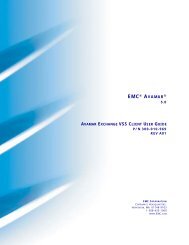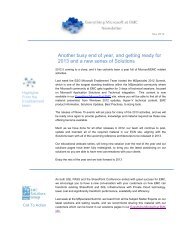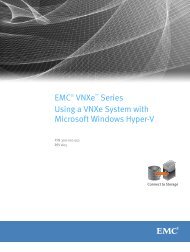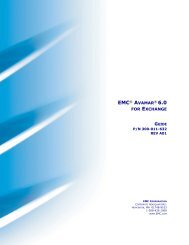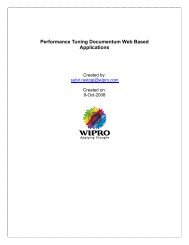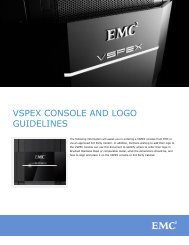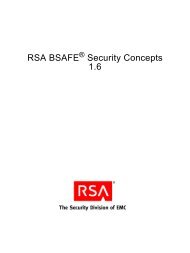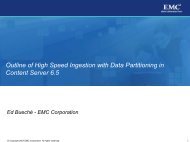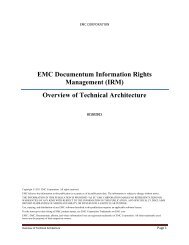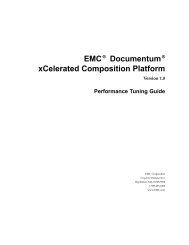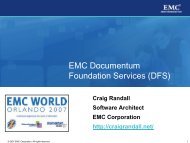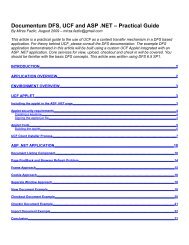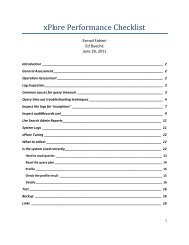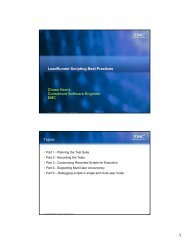Performance Tuning Guide - EMC Community Network
Performance Tuning Guide - EMC Community Network
Performance Tuning Guide - EMC Community Network
You also want an ePaper? Increase the reach of your titles
YUMPU automatically turns print PDFs into web optimized ePapers that Google loves.
Designing the Application<br />
<strong>Guide</strong> for supported format and viewer combinations. For 6.5 SP2, DIS supports page serving for<br />
PDF and TIFF document formats with both Daeja ViewOne Pro and IGC Brava! document viewers.<br />
The following can cause long rendering time:<br />
• The application server downloads the full document to the client instead of single pages. Large<br />
documents exhibit a more pronounced impact. Configure ACS for page serving (Turning on<br />
page serving, page 66).<br />
• For Brava viewers, every request from the viewer goes to the Brava license viewer. <strong>Network</strong><br />
latency with the Brava license viewer can result is poor performance.<br />
• First time viewing takes more time. Browser caching improves performance after the first time<br />
view.<br />
Checking ACS operation, page 79 provides information on measuring the performance of ACS<br />
operations.<br />
Using adaptors<br />
Form templates specify how to handle data associated with the form, such as initial data values,<br />
instructions for validating data a user enters, and storing the data when the form is submitted.<br />
Adaptors help complete a form by providing data for certain fields. For example, an adaptor typically<br />
populates a dropdown box with a list of countries, certain departments, or employees. Usually this<br />
information is not hard coded into the dropdown (although it can be), and is brought over through a<br />
query within the xCP system or from outside the system.<br />
Designing adaptors<br />
Forms open slowly when they contain too many adaptors, poorly written adaptors, or when there are<br />
problems with an adaptors external data source (network latency).<br />
• Defer execution of the adaptor to some other event than form initialization, for example, when<br />
the user selects their inbox, or selects a tab or control. Deferring adaptor execution is especially<br />
important when an adaptor provides dependent data, like state/city, as this information requires<br />
multiple queries to the adaptor.<br />
• Hard code values that do not change often, like country names, as they do not require much<br />
maintenance.<br />
• Design forms for single use cases and verify the necessity for adaptor execution in each use case.<br />
• Avoid integrating with external systems – calls to external systems are synchronous and dependent<br />
on the performance of the external system. If possible, implement an asynchronous solution that<br />
mitigates getting real-time data across a network from a third-party system or database.<br />
Measuring adaptor performance, page 78 provides information on measuring adaptor performance.<br />
52 <strong>EMC</strong> Documentum xCP 1.0 <strong>Performance</strong> <strong>Tuning</strong> <strong>Guide</strong>



